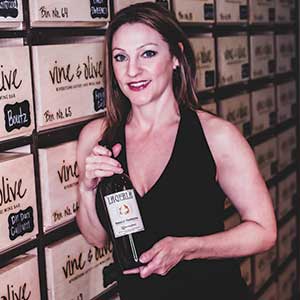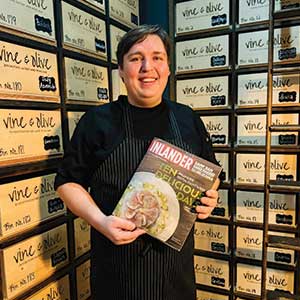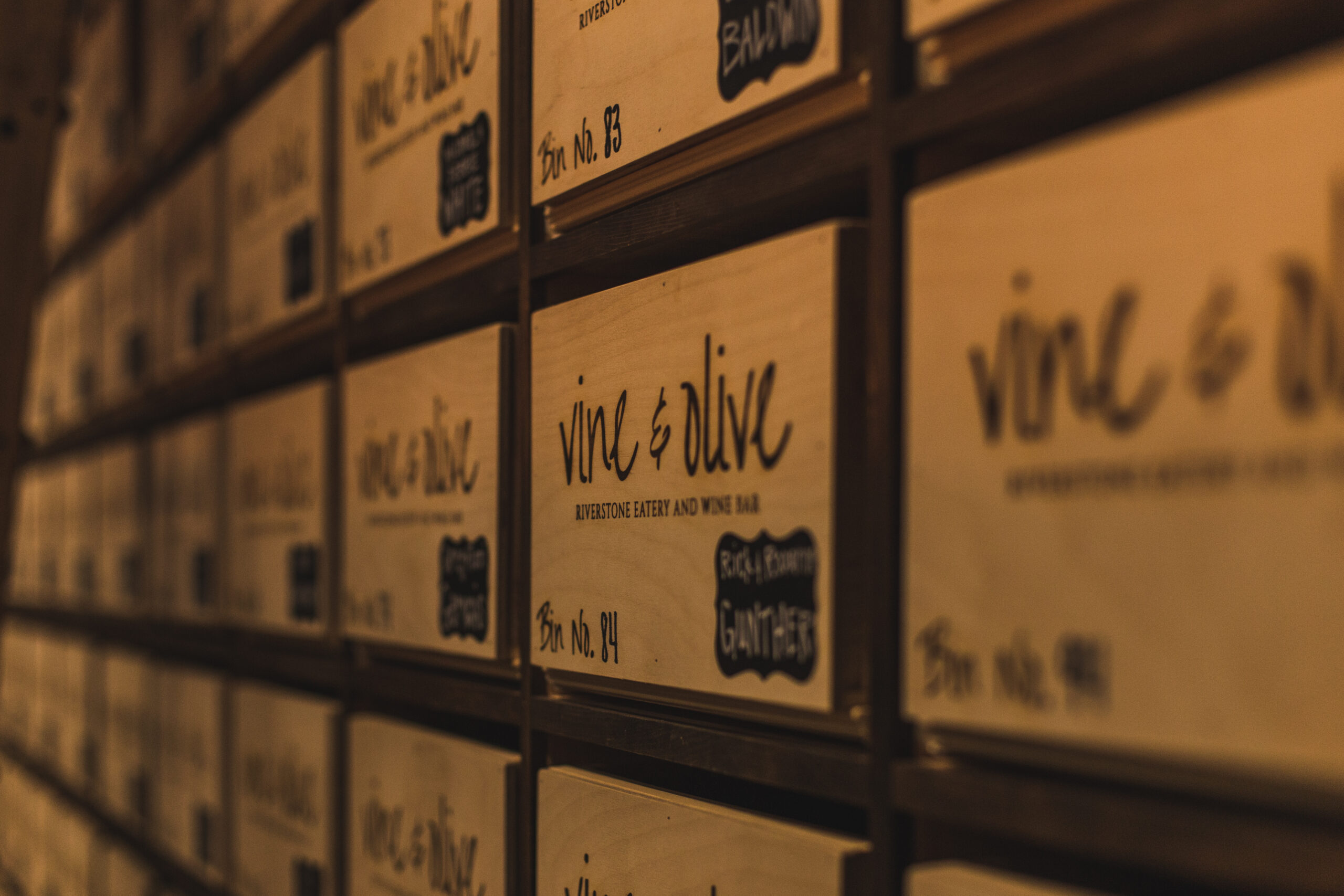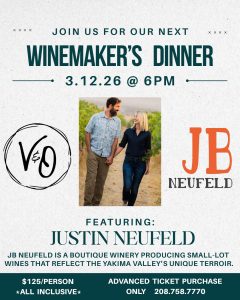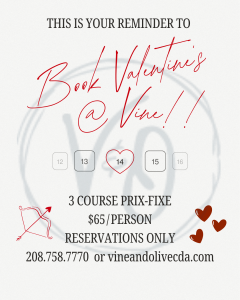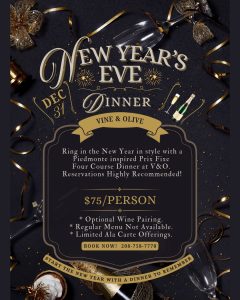A before-dinner drink (known as an apéritif in France and an aperitivo in Italy) can help set the mood for a meal.
An after-dinner drink (a digestif or a digestivo) is intended to aid digestion and extend the evening. Nonalcoholic beverages (aka mocktails) also can add to conviviality.
Drinks are an important aspect of elevating the dining-out experience, and none more so than wine. With dinner, wine can make food sing — and vice versa.
Naomi Boutz has been bringing sublime food-and-wine experiences to Coeur d’Alene since 2018 when she opened Vine & Olive Eatery and Wine Bar in the Riverstone neighborhood.
“The more I reflect on my personal process for highlighting food and wine at Vine & Olive, the more I realize that it’s impossible for me to separate the two,” Boutz says.
But for her, the pairing process doesn’t stop with identifying complementary flavors in a dish and a wine.
“The relationship between food and wine goes way beyond what you are eating,” she says. “Wine and food are about love, science, art, culture, feelings, emotion, history, agriculture, weather, seasons, sacrifice, risk. Whatever phase my life is in, my relationship with food and wine will reflect that. Who has inspired me? Who have I learned from?… When I think food and wine, I think culture. I think feelings. Moments.”
While that may seem like a lot to consider for one simply seeking a “drink this with that” pairing, Boutz suggests the ultimate payoff is worth the pursuit.
“The relationship between food and wine is unique in that, together, they have the ability to connect us like nothing else,” she says. “To create moments that turn into memories. To open the door to conversations we might not feel comfortable having. To build bonds that are hard to describe. The common connector is food and wine.”
Which brings us to the classic chicken-egg question: When seeking a sublime pairing, which comes first, the food or the wine? Turns out it’s not an either/or matter.
“Sometimes I’ll find a wine that deserves to be featured, and I’ll give chef [CJ Fox-Lopp] specific ingredients to work with to bring out a component in the wine that elevates the experience of enjoying them together,” Boutz explains.
“Other times, chef will make a dish, and it’ll remind me of a wine I tasted earlier in the month that would be a perfect pairing. On our summer menu this year, we had a charred cabbage with a miso butter. When I first tried it, I immediately thought of the Lobo Hills Dry Riesling [from the Alsace region of France] that I had sampled the week prior. We poured the riesling by the glass to pair with the dish.”
Often, dishes will be added to Vine & Olive’s menu based on Boutz’s travels.
“I spent 45 days in Spain this spring to do the Camino de Santiago [pilgrimage walk],” she says. “Chef put octopus on the menu to celebrate that trip. Our summer menu had black lentils with our fish dish because I ate a lot of lentils on the Camino.”
Dishes and pairings also can follow the flavors of the seasons.
“We just launched our fall menu, and it’s taking advantage of locally foraged chanterelles, pumpkin, pears and Brussels sprouts,” Boutz notes.
The mushrooms are featured on both a large plate and a small plate. The fettuccine ($24) includes pancetta, pecorino and green sauce tossed with the house noodles, and the menu-recommended Scarpa Barbera d’Asti from Italy ($13/glass) was an inspired pairing. The chanterelle gratin ($15) — with Pernod, Gruyere and breadcrumbs, served with crostini — is a taste of Lyon in a small bowl, elevated by the restaurant’s La Florane Cotes du Rhone red blend ($12/glass).
The seasonal dishes complement Vine & Olive’s signature dishes that have been on the menu since the restaurant opened. And while running a restaurant and wine bar is far from a 9-to-5 job, Boutz takes her career choice — perhaps better described as a calling — seriously.
“I get to experience food and wine all over the world and then bring a tiny part of that feeling to Coeur d’Alene,” she says. “It’s an honor — to tell a story, to open a bottle and be reminded of the passion of the people who made the wine and grew the grapes.”
Boutz sees her role as providing experiences for those who love food and wine, not being considered some sort of guru.
“We need to stop being authoritative in our opinions,” she suggests. “You can form your own opinions, which I hope are positively memorable. Whether they are simple or dramatic, I’d be grateful to be part of them.
“Good food and wine is not complicated. It’s a good life.” ν

